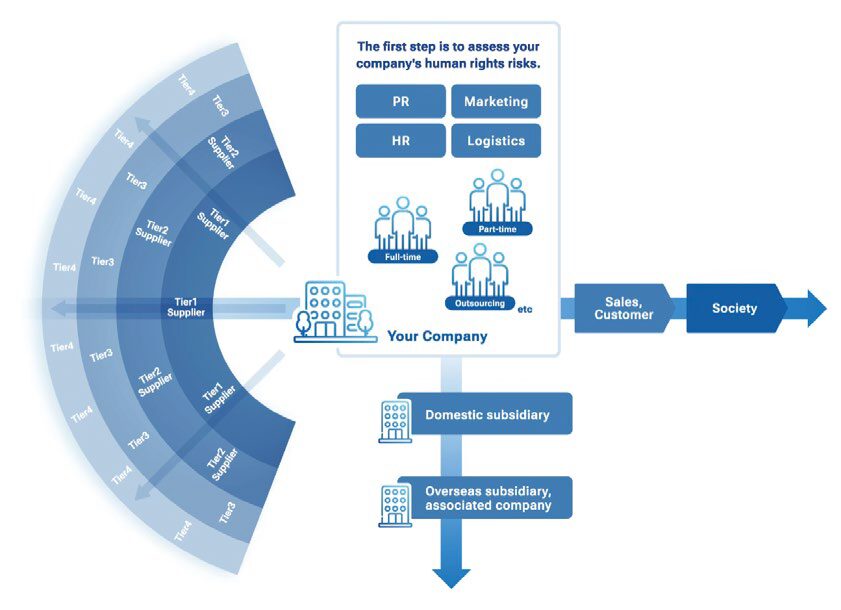Inochi Declaration
Recognize people not merely as capital to generate wealth, but as irreplaceable Inochi, and transform the world of business into one that truly embraces human rights.
At the heart of our society lies the economy, woven together by corporate activity. These endeavors, predicated on the universal human desires for safety and security, have historically generated immense wealth through successive waves of technological innovation, fulfilling many aspects of human self-actualization.
Yet this pursuit of great wealth has come at a cost. As financial gain became an overwhelming force, our gaze shifted exclusively toward accumulating capital. Money, originally intended as
a measure of value exchange for tangible goods and experiences, has now become a product itself. In this extreme capitalist system, where money generates more money without grounding in real-world value, the limits are becoming increasingly apparent. This trend has led to a tacit social norm: people are viewed primarily as capital to generate wealth. In the process, we have lost sight of what matters most—Inochi. As we chase profit, we risk neglecting the cultivation of compassion and respect for others.

Human rights due diligence required of enterprises
The low awareness of human rights in society has also allowed unconscious bias to proliferate, resulting in many instances of discrimination that are unintentional but harmful. In Japan, where there is neither active immigration policy nor a multicultural demographic, sensitivity to human rights issues tends to be low. As a result, discriminatory perceptions of Inochi often go unnoticed, and tragically, there are numerous cases in which lives that should shine with potential are lost. As more Japanese companies expand globally due to declining domestic demand, it is essential that they raise their awareness of human rights and confront these issues with sincerity and introspection.
It is precisely because companies are collectives of people— and because they form the core of economic activity—that they must face up to human rights as the very foundation of what it means to be human. It is crucial to know what is happening around the world, what is being lost before our eyes, and to engage with these realities. While many international guidelines are already being developed, Japan has also issued its own National Action Plan on Business and Human Rights through the Ministry of Justice. This plan requires companies to proactively reduce their negative human rights impact. Today, human rights due diligence is no longer optional—it must be treated as a priority management issue. Without actively identifying, preventing, and addressing adverse human rights impacts, companies will not be able to sustain growth in the global arena.
In this context, companies such as Link Saussure Inc. in Japan are actively addressing human rights risks. Their initiatives go beyond risk identification and analysis; they offer support for organizational reform that tackles root causes, and for stakeholder reporting that promotes transparency and accountability. Rather than framing issues as a binary conflict of “self” versus “others,” we must broaden our perspective to include the entire world that surrounds us. Instead of reducing complexity to “either/or” logic, we must adopt “both/and” thinking—perceiving change as a gradient and embracing the human responsibility to leave behind a society rich in dignity and possibility for future generations.
The Inochi Forum will continue to support efforts to ensure that corporate engagement with human rights becomes a societal norm. We will work to promote consistent and comprehensive support—from identifying and analyzing risks to improving organizational practices and disclosing information to stakeholders—thereby contributing to the realization of a society filled with hope for the future.
[References]
・The Importance of Human Rights Due Diligence:
https://www.link-ss.co.jp/human-rights/
[Action Platform]
Economy, Employment and Poverty / Peace and Human Rights
[SDGs]



